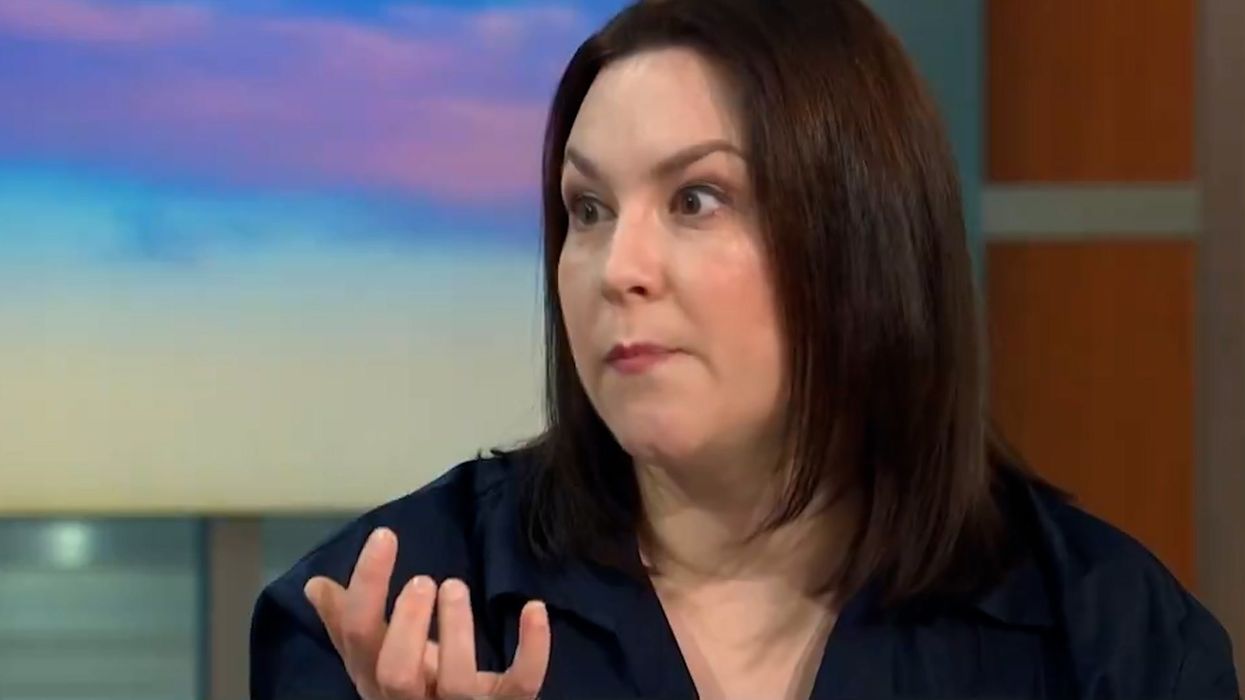Becca Monaghan
Sep 26, 2024
Plastic surgeon issues warning over fake cosmetic injectables causing ‘skin loss from …
Good Morning Britain, ITV
The UK is one of the few countries that does not have regulations in place when it comes to who can or cannot administer fillers and anti-ageing injections. Meanwhile in the US, "only licensed and trained medical professionals can provide injections".
It was recently revealed Scotland was the "worst country in Europe" for unqualified beauticians injecting clients, with Jackie Partridge of The British Association of Cosmetic Nurses (BACN) commenting: "Colleagues across the rest of the world are shocked and in disbelief that non-medically qualified persons are legally allowed to treat the public.
"The UK is a joke when it comes to our colleagues in the rest of the world and Scotland is the worst in the UK."
That said, there's a significant rise in Britons undergoing tweakments - with some overfilling due to the widespread accessibility and cheap prices.
Indy100 spoke with Dr Ahmed El Houssieny, medical director of Bank Medispa, to discuss the dangers and red flags to look out for.
Dr Ahmed expressed that overfilling can sometimes have an "unnatural appearance and makes the results look artificial". And while the end result is subjective to each individual patient, there are also more serious risks at play.
"Too much filler can interfere with circulation and blood flow which can lead to a puffy look, or at worse tissue damage," Dr Ahmed said. "Typically, we advise 12-18 months for maintenance when it comes to topping up - but this can vary on what filler is used in the treatment."
So, what red flags should people look out for when considering injectables?
Lack of credentials
When an injector is unable to show their qualifications or does not want to, this should be a cause for concern, Dr Ahmed suggested.
Chances are, they are not a licenced medical professional, which could mean they do not have valid insurance to carry out the procedure.
No consultation
"Consultations are extremely important for the patient and the injector," Dr Ahmed said. "Firstly, the patient needs to feel comfortable and safe."
Patients should be given reasonable time to explain their needs to the injector before being told the "realistic overview of treatment price, time, downtime and future appointments is needed".
"The consultation is where all consent forms are signed and acknowledged by both parties so it’s a legal document. It’s where you can ask as many questions as you need and calmly make your decision as to what treatment you would like."
Unusually cheap prices
While Dr Ahmed disclaims that sometimes prices can be cheaper due to the injector being newly qualified and building their client base, there are also times when the treatment is unusually cheap "due to the product they use which may be less potent and a brand not well recognised".
He also encouraged people to ensure the setting is clean and hygiene standards are met to avoid further complications.
Inadequate aftercare information
Most practices offer a follow-up, review or homecare advice given or emailed over to the client after treatment to ensure the treatment has worked effectively and without any side effects.
To ensure the safe and effective use of injectables, Dr Ahmed concluded: "Ultimately the biggest factor is trusting your injector and knowing the product they use is medical grade and approved. Offering multiple options for treatments, plus a cooling off period to think over. Able to deal with complications if they arise.
"Our patients are our biggest priority and will always come first. We will always, always go above and beyond to make sure they are safe, happy with the results and able to speak to us at any time."
How to join the indy100's free WhatsApp channel
Sign up for our free Indy100 weekly newsletter
Have your say in our news democracy. Click the upvote icon at the top of the page to help raise this article through the indy100 rankings.
Top 100
The Conversation (0)














